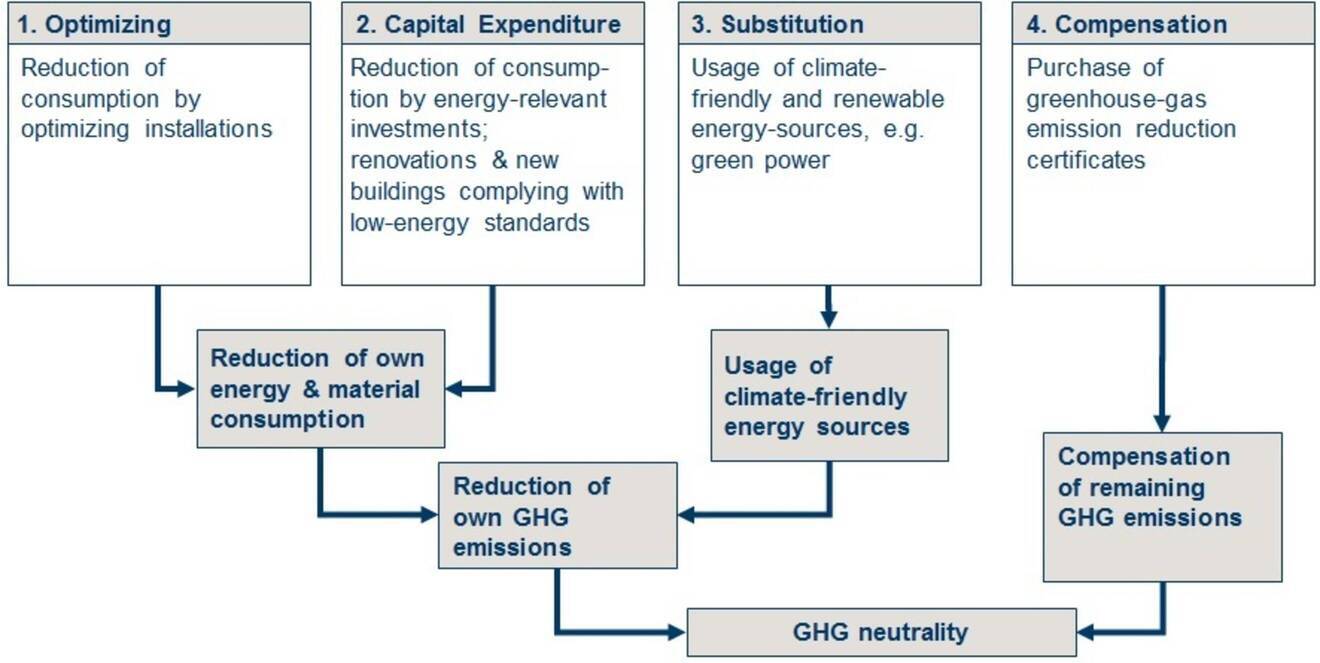Climate & Carbon Strategy Moving towards Net-Zero
Global Warming, or climate change, is a key challenge for our societies and economies. Companies are required to find solutions and actively contribute to the achevement of climate goals.
The climate strategy identifies the paths for implementation - optimization, investments, substitution and offsetting, and related targets. Furtheron the climate strategy defines specific and measurable goals and measures to reduce greenhouse gas emissions.
Elements and Hierarchy of a climate strategy

E2 Management Consulting AG Science Based (Climate) Targets
'Science Based Targets' (SBTs) enable an organisation to define its own climate targets. SBTs are based on the international climate targets of the 'Paris climate summit', and on sectoral emission pathes based on 'Paris'. With SBTs, a company can define its contribution towards achieving the 'Paris' goals, usually with a time horizon of 2025 or 2030. To do so, various methods and tools were developed. Calculated targets get checked by a panel of specialists. The Science Based Targets projects is supported by the CDP (Carbon Disclosure Project), WWF, UN Global Compact and the WRI (World Resource Institute).
By early 2022, more than 1100 companies have committed to science based (climate) targets, whereof 1400 from Europe (60-plus from Switzerland) according to the SBT-Consortium.
However: Even many companies who ranked global warming as their major single risk in the Corporate Reporting Monitor 2021 of the Swiss CCR - Center for Corporate Reporting haven't defined a single climate related target yet!
E2 Management Consulting AG Our service: Your climate strategy
E2 supports clients in the development of Science Based Targets (SBTs). Key aspects in such a project are
- the linkage between the company's overall strategy and the science based climate targets
- the choice of the best fitting target setting method
- the understanding of the relation between existing environmental targets and new (science based) climate targets (incl. possible trade-offs)
In E2's view, SBTs are a valuable development. They give a well founded basis for a company's long term climate targets. The SBT approach can also be used without publishing calculated climate targets.
To be considered are possible trade-offs which climate oriented measures can create in other environmental areas. (The encompassing Ecobalance analysis helps to identify such developments.) In order not to forget this aspect, we prefer to call SBTs "Science Based (Climate) Targets".
